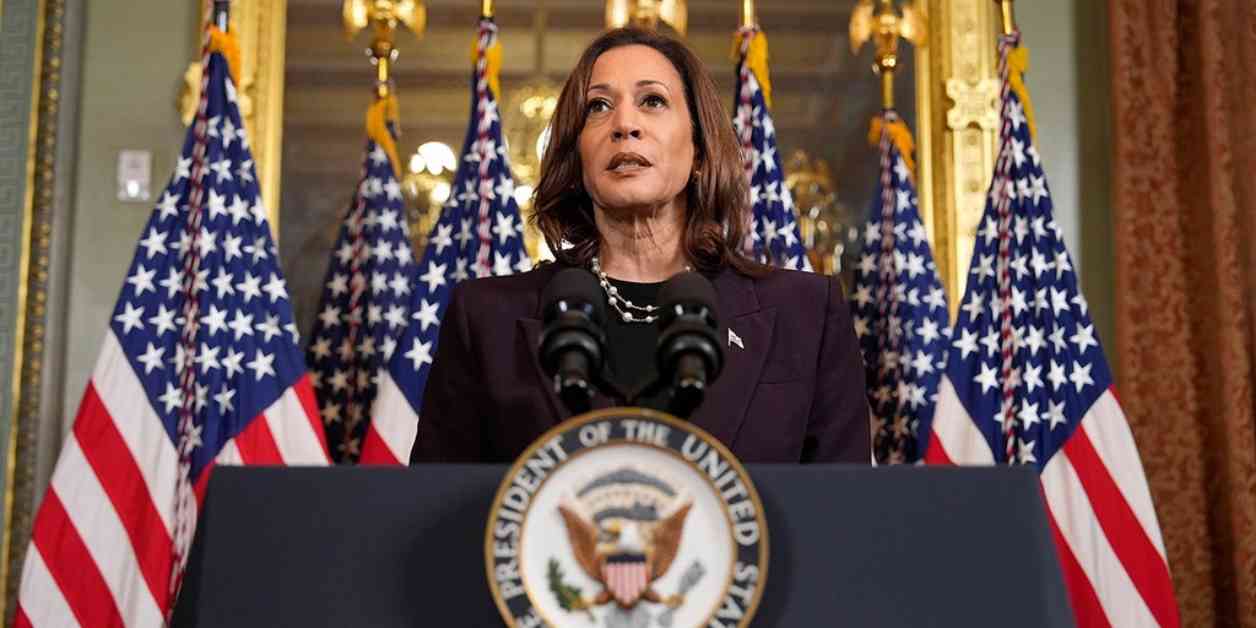As President Joe Biden and Vice President Kamala Harris continue to navigate the economic landscape, the impact of Harris’ tiebreaker votes on inflation-boosting policies is coming under scrutiny. The passage of the Inflation Reduction Act, with Harris casting the deciding vote, has had far-reaching consequences on the economy, particularly in terms of rising prices across various sectors.
The $739 billion spending bill that passed the Senate by a narrow margin of 51-50 thanks to Harris’ tie-breaking vote in August 2022 was hailed as a significant achievement by the Biden administration. However, the aftermath of this decision has not been without its challenges. Since Harris cast the tie-breaking vote as president of the Senate, the cost of rent has climbed by 13%, while new mortgages have seen a staggering 36% increase in just two years. These figures, compiled by Americans for Tax Reform, paint a concerning picture of the inflationary pressures facing American households.
According to the ATR’s analysis, the cost of baby food has shot up by 13%, with frozen vegetables also seeing a 14% increase in prices. These essential household items have become more expensive under the Biden-Harris administration, raising concerns about the impact on families’ budgets. Additionally, transportation costs, butter, bread, flour, and breakfast cereal have all experienced single-digit price hikes since the passage of the Inflation Reduction Act.
Critics of Harris’ economic plan have pointed to the rising prices of basic necessities like baby food and frozen vegetables as evidence of the administration’s failure to address inflation effectively. The cost of living has continued to rise, putting pressure on households already struggling to make ends meet. While some prices, such as gas, transportation, energy, chicken, and milk, have declined over the last two years, the overall trend is one of increasing costs across the board.
Since taking office in January 2021, Biden and Harris have presided over significant price increases in almost every sector measured by the ATR’s statistics. New mortgage rates have skyrocketed by 156%, while rent has seen a 22% jump in prices. Gas prices have gone up by 35%, energy by 33%, and transportation by 28%. The cost of eggs has increased by 53%, baby food by 30%, frozen vegetables by 28%, bread by 24%, and milk by 17%. These inflationary pressures are putting a strain on American households and raising questions about the effectiveness of the administration’s economic policies.
Harris’ pivotal role in casting tie-breaking votes on major legislation, such as the American Rescue Plan, has also come under scrutiny for its impact on inflation. The $1.9 trillion relief package, passed with Harris’ vote, led to the printing of more money amid rising inflationary pressures. Critics argue that these decisions have contributed to the current economic challenges facing American families, particularly in terms of rising prices and reduced purchasing power.
Grover Norquist, president of Americans for Tax Reform, highlighted the role of Harris in driving inflation through her tie-breaking votes on key legislation. He pointed to the American Rescue Plan and the Inflation Reduction Act as the two biggest drivers of inflation, emphasizing the additional costs imposed on households by the Biden-Harris regulatory regime. Norquist warned that Harris’ proposed tax increases, including a carbon tax, a 44.6% capital gains tax, and a 28% federal corporate tax rate, could further exacerbate the economic challenges facing Americans.
The Democratic National Committee defended Harris’ economic record by comparing it to former President Donald Trump’s policies during the COVID-19 pandemic. DNC spokesperson Alex Floyd criticized Trump’s economic proposals, claiming they would benefit billionaires at the expense of working families. Floyd referenced a statement by 16 Nobel economists endorsing then-candidate Biden’s economic plan and warning against the inflationary risks posed by Trump’s policies.
As the debate over inflation-boosting policies continues to unfold, American households are feeling the impact of rising prices on essential goods and services. The Biden-Harris administration faces mounting pressure to address these economic challenges and implement effective measures to curb inflation and support working families. In the midst of a changing economic landscape, the decisions made by Vice President Harris and the Biden administration will have far-reaching implications for the future of the American economy.




